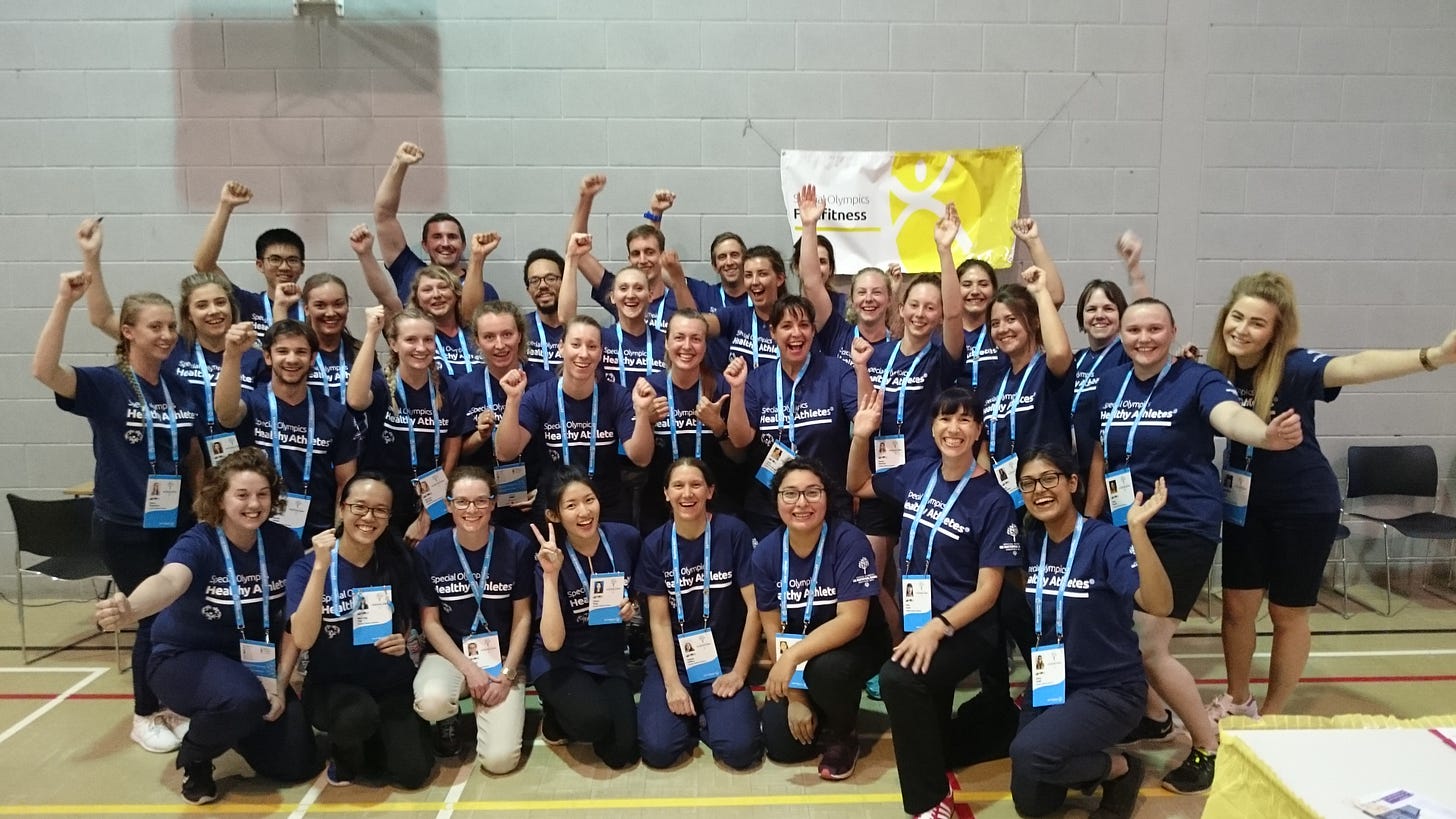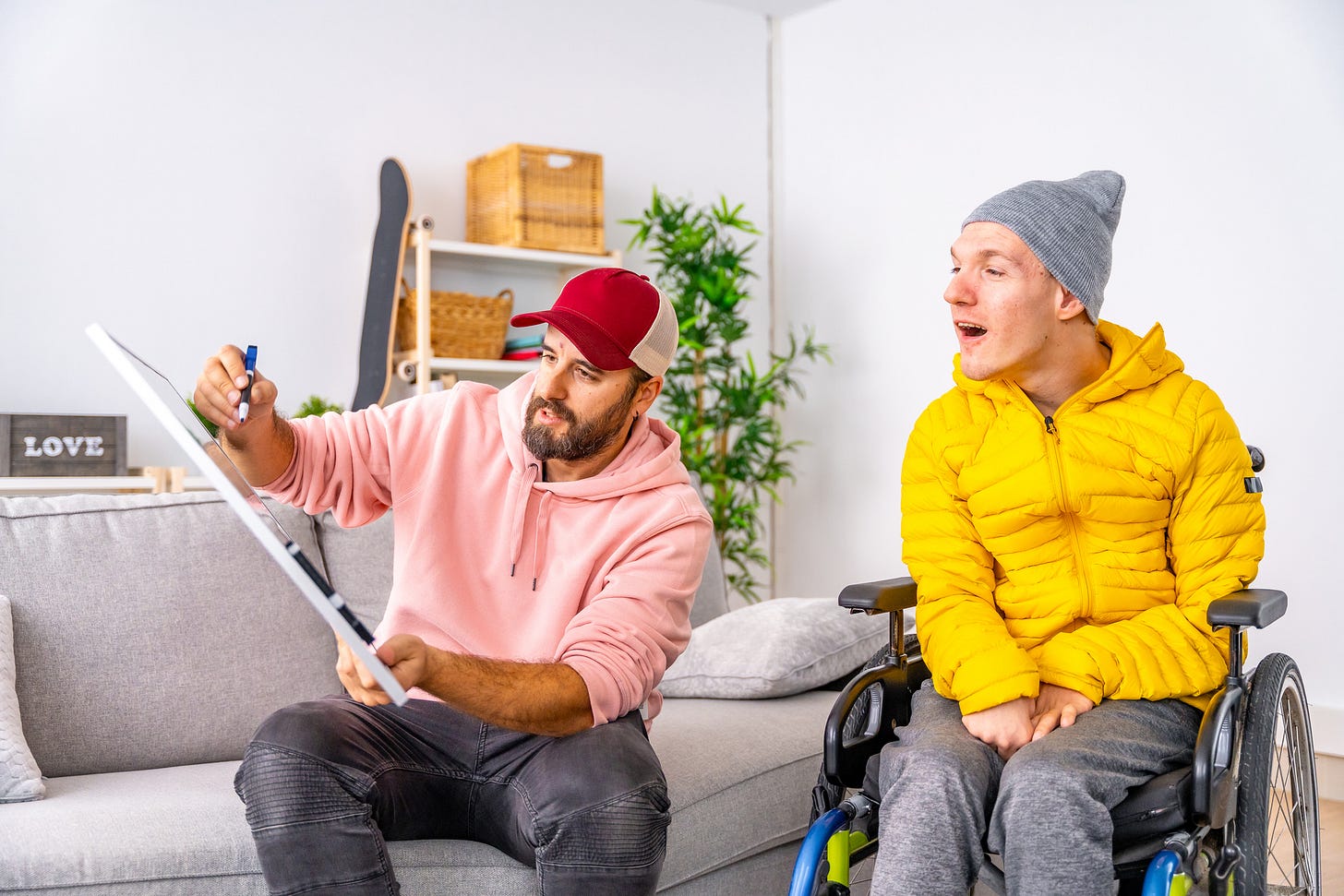There is a battle that rages on in every university I have worked with throughout my career. Programme leads have varying approaches for how best to cover the fundamental basics to train rounded students who have a grasp of the profession and its vast and varied scope. I have been involved with many a discussion around what should be involved as part of an excellent undergraduate programme, which resulted in me assisting Roger Kerry and the University of Nottingham on their problem-based course redesign in 2023. [1]
Our profession is VAST. No, it is even more vast than that; we have the ‘core areas’ yes, but we then have Bradley Scanes, who, until 2024 was working with Formula 1 World Champion, Max Verstappen. Rachel Greetham – British Equine Physiotherapist, Preet Chandi, a British Army physio who became the fastest woman to complete a solo expedition to the South Pole [2], Dr Melrose Stewart – bringing physiotherapy for ageing persons to the mainstream through TV work, and Jack Chew, whose work through Physio Matters demonstrated the ability to blend a background in media with physiotherapy to get people moving. This list doesn’t even get started on whole other sections of our profession, those supporting people in intensive care, pelvic health, paediatrics, and a myriad of others.
Pulling together a course to cover all these areas would be nigh on impossible. And so, areas of clinical practice inevitably get missed. I do not have a problem with this per se but I would like to think that courses could go some way to help less mainstream areas of practice be integrated and represented. Normalisation and awareness of these areas of clinical practice will not just help patients but also help students develop a more rounded skillset. Each area of practice will have its own particular skills that students can learn from. From my area, it is often about communicating, building rapport and the panacea of clinical work that is person-centred practice.
One area of practice that is often overlooked is learning disabilities, and this has consequences.
Between 2-3% of the UK population has a learning disability; some 1.5 million people [3,4].
When we ask mainstream clinicians about their capabilities to work with these people, many cite anxiety and feelings of under preparedness [5]. When reflected against the scope of training, it is understandable as to why. If you had never been taught about spinal anatomy, you would be hard pressed to be able to pick up someone with cauda equina. The challenge is that these feelings are mirrored across the entirety of healthcare [5]. This is where the problems arise; rather than being under prepared for spotting cauda equina, we are under prepared for the person and miss the cauda equina entirely. We are unable to engage the person and so miss the potential clinical signs of a tumour or new abnormal reflexes of the person.
Our education teaches us that there is a process for undertaking an assessment. Subjective first; you ask a question, the person responds, you refine your questioning on the back of their answers, which informs your objective assessment. You ask the person to undertake tasks or tests as part of your objective assessment and so on. But what if the person you’re working with has no understanding of the concept of what a question is or is too intimidated to answer? What if they can’t consent to an objective assessment? What then? Well, in my experience, our indifference means we move on and write “patient failed to engage with assessment”. Moving on means people go off their feet. Moving on means a serious pathology is more likely to be missed. Moving on means an opportunity to engage someone with physical activity and potentially set them up for a healthier relationship with movement and exercise is missed. In rarer circumstances, we may engage, but feel out of our depth and attribute clinical symptoms to the fact that someone has a learning disability for example and our internal reasoning may go along the lines of “of course they are rocking and biting their hand, they have a learning disability and that’s what people with this condition do.”
This process happens elsewhere, when it comes to mental health [6], elderly care, women’s health and many other areas. People’s presentation is thought to be a manifestation of anxiety, dementia, their menstrual cycle or menopause. Diagnostic overshadowing is defined as the attribution of symptoms to an existing diagnosis rather than a potential co-morbid condition [6]. Diagnostic overshadowing is a significant contributory factor to the fact that people with learning disabilities die up to 23 years younger than the general population (19 years for men, 23 for women) [7]. 44% of people with learning disabilities who died in 2022 died from preventable conditions (this compares to around 20% for the general population). [7]
Why should this be so when a learning disability is defined as a condition which limits a person’s ability to learn new information across all areas of life [5] rather than a medical health condition. People don’t die prematurely from a learning disability; they die prematurely from poor healthcare. Some recent examples include situations where a lady starved to death whilst recovering as an in-patient following elective cataract surgery [8] and a gentleman who died after staff were unable to engage him on a ward setting, resulting in his kidney failure being missed and leading to him having a cardiac arrest (he was originally admitted with skin problems) [9]. Both of these people were surrounded by a hospital team, both were in-patients and yet our healthcare services let them down in the most serious manner possible. These are just two of the hundreds of cases each year where people with a learning disability die because we, the healthcare professionals, don’t know how best to support them.
This article isn’t a ‘how-to’ of supporting people with learning disabilities.
That may follow but this article is a ‘I need you to know how bad things are for people with learning disabilities in healthcare right now’.
If I wrote the ‘how-to’ article now, be honest - would you read and digest it? Or, would you think “I don’t see people with learning disabilities in my practice so it’s less relevant to me?”
In MSK we focus a lot on saving days lost to sick leave, or saving the country money. I’m talking about literally saving the lives of people who are not screened by the right people properly. You are the right people: experts in your field of MSK care. I’m a specialist in the how of working with people, you’re the experts in the what, let’s work together and see how far our joint approaches can benefit those with and without learning disabilities.
References
[1] Gould M (2023), Frontline, 1;23-26 https://www.csp.org.uk/frontline/article/redefining-physiotherapy-education
[2] British Army (2024) British Army's 'Polar Preet' becomes the fastest woman to the South Pole. Accessed online https://rb.gy/gyhzld
[3] Public Health England Deaths of people identified as having learning disabilities with COVID-19 in England in the spring of 2020. 2020 https://rb.gy/9rxd47
[4] Office for National Statistics (2023). Estimates of the population for the UK, England and Wales, Scotland and Northern Ireland. https://rb.gy/xihe1n
[5] Pelleboer-Gunnink, H. A., Van Oorsouw, W. M. W. J., Van Weeghel, J., and Embregts, P. J. C. M. (2017) Mainstream health professionals' stigmatising attitudes towards people with intellectual disabilities: a systematic review. Journal of Intellectual Disability Research, 61: 411–434. doi: 10.1111/jir.12353.
[6] Hallyburton A. Diagnostic overshadowing: An evolutionary concept analysis on the misattribution of physical symptoms to pre-existing psychological illnesses. Int J Ment Health Nurs. 2022 Dec;31(6):1360-1372. doi: 10.1111/inm.13034. Epub 2022 Jun 19. PMID: 35718951; PMCID: PMC9796883.
[7] Kings College London (2023) Learning Disabilities Mortality Review (LeDeR) Programme. Annual Report.
[8] HM Judicary (2021), Regulation 28 Report To Prevent Future Deaths. Accessed online at https://www.judiciary.uk/wp-content/uploads/2021/05/Laura-Booth-2021-0137-Redacted.pdf (last accessed 09 May 2024)
[9] Triggle N (2023), Hospitals fail people with learning disabilities, says watchdog BBC Article, access online https://www.bbc.co.uk/news/health-67291504 (last accessed 9 May 2024)







